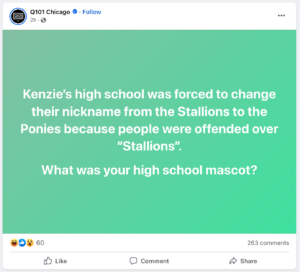How Hackers Use Memes for More Than Just Gathering Personal Info
Social media has become a prime target for hackers looking to gather personal information on unsuspecting users. One of the ways they do this is through the use of seemingly innocent memes that encourage people to share details about themselves.
For example, you may have seen memes on Facebook asking things like “The car you passed your driving test in was a …,” and then you’re supposed to share the make/model. On the surface, this seems harmless, but hackers engineer these types of memes to mine your personal data.


Sharing specifics about your life gives hackers clues to guess security questions or reset passwords. Posting answers publicly to questions like your first pet’s name, street you grew up on, high school mascot, etc., hands over small details that help hackers build a profile on you.
But hackers can go beyond just gathering personal information through memes. They can use that intel for more sophisticated social engineering tactics.
By analyzing the content you engage with, the memes you share, and the discussions you participate in, hackers can build a psychological profile to exploit your vulnerabilities. Hackers can utilize this knowledge to create targeted phishing attempts or unknowingly manipulate you into divulging sensitive information. For example, if a hacker knows you’re an avid football fan based on the pages you follow, they can send a phishing email disguised as a special ticket offer for your favorite team. If they know you’re active in alum groups, they can pretend to be from your university and ask you to verify personal details like your student ID.


The more hackers can learn about your interests and habits through your social media activity, the better they can fine-tune social engineering scams to hook you. A seemingly random meme can provide just enough personal intel to craft the perfect trap. So be wary whenever you’re asked to publicly share personal details on social media, even in a fun meme format. Also, be skeptical of offers and communications that seem customized to your interests and background – if something seems too good to be true, it may be a clever hacker taking advantage of your oversharing. Limiting what you post publicly and being vigilant against phishing can help guard against these insidious social engineering threats.
Tips for Protecting Personal Information on Social Media
Protecting your personal information on social media is crucial. Here are a few tips to help you stay safe:
Be Mindful of what you share: Exercise caution and consider the information you share on social media. Avoid answering questions that could reveal personal details or be used to access your accounts.
Adjust Privacy Settings: Regularly review and update your privacy settings to limit the visibility of your personal information to trusted individuals only. Be cautious about accepting friend requests from unknown individuals.
Question the Memes: Stay vigilant and be aware of memes that prompt you to share personal information or answer questions that hackers may exploit. Think twice before responding; if in doubt, it’s best to avoid answering altogether.
Strengthen Security Measures:
- Use strong, unique passwords for all your accounts.
- Enable two-factor authentication whenever possible.
- Keep your software and devices up to date with the latest security patches.
Always use Caution: Be cautious of suspicious links, even those from people you trust.




Leave a Reply
Want to join the discussion?Feel free to contribute!